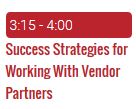Some time ago, I talked a little about information reuse and content management. I have had the opportunity to talk with a company that is experiencing this right now. The short version is that people cannot find the information they need and doing their jobs is delayed.
This company is several years old, but still young and I applaud them for realizing that their information has value and wondering if it still has value if nobody can find it.
This is interesting to me and I wonder if it is a trend? For years companies had vast libraries with multiple researchers and librarians corralling information and pushing it back out to colleagues for use in the business of the organization.
Libraries started to close in the early the 2000s and that coffin was nailed shut in the crash of 2008. Many libraries were closed or reduced to shadows of their former glory. Law firms, in their bid to recover from the crash have followed suit. Organizations believed the hype about full text search being the ultimate tool. Librarians didn’t help their cause when they stuck to traditional methods and, in many cases, failed to understand and embrace new technologies and methods.
Now Content Managers are being hired. These are not always MLIS grads; they are sensible people who have skills in organization, but may not be trained in standard (library) methods. This is a place where a forward thinking, technologically oriented information professional can thrive if s/he can get past the stereotype of the shushing librarian.

